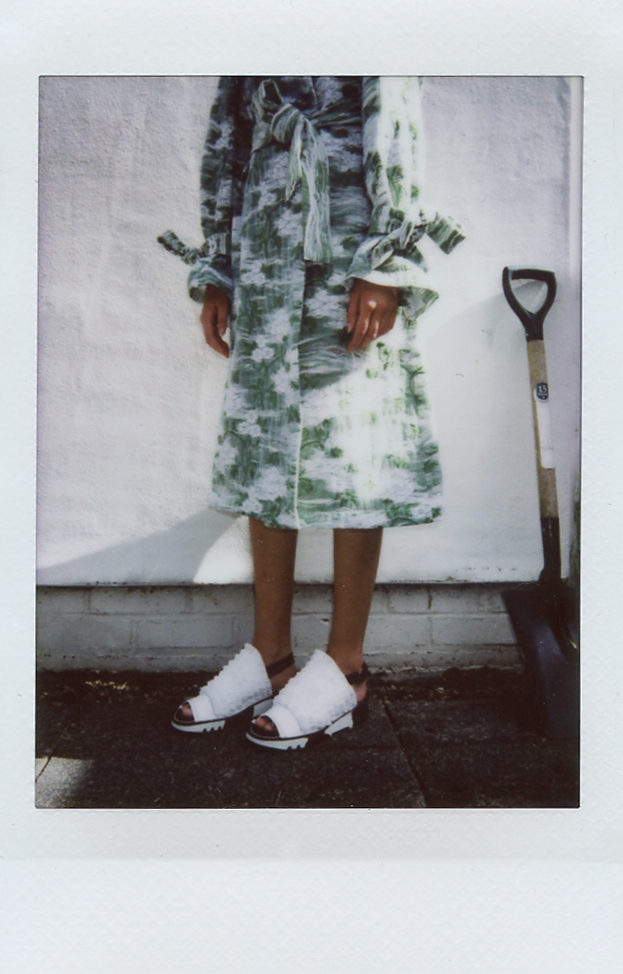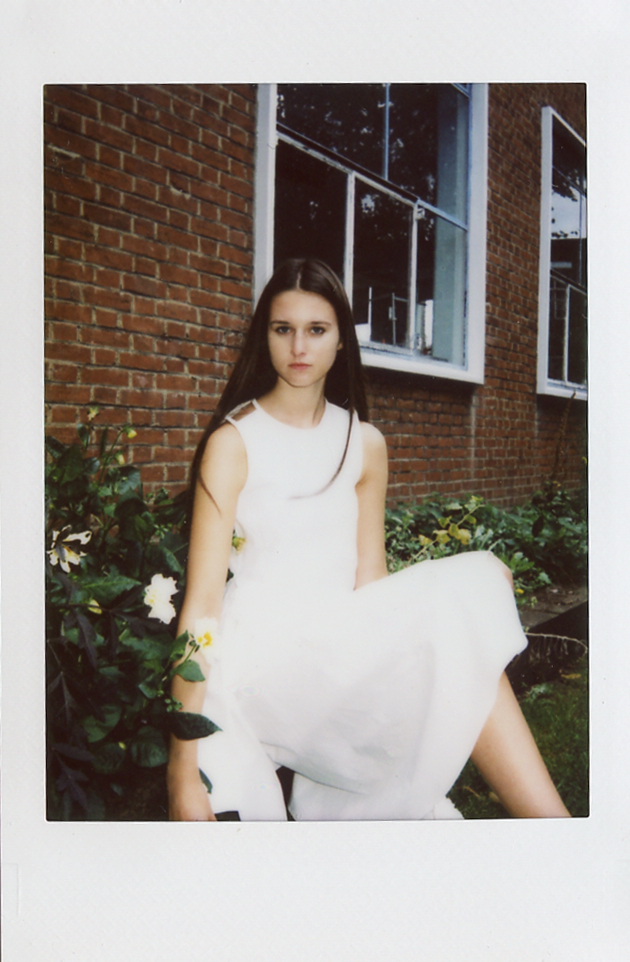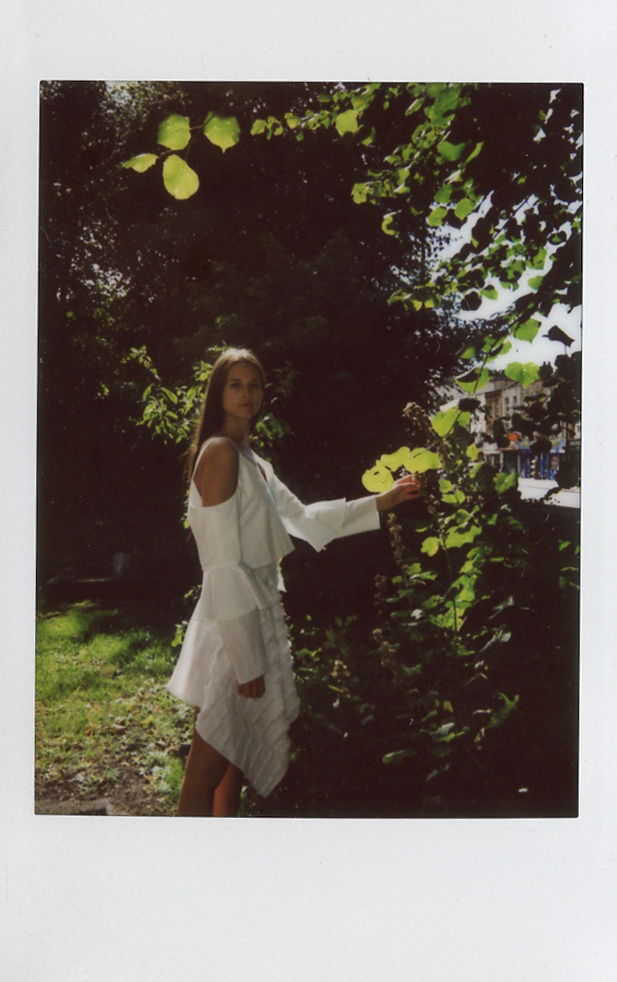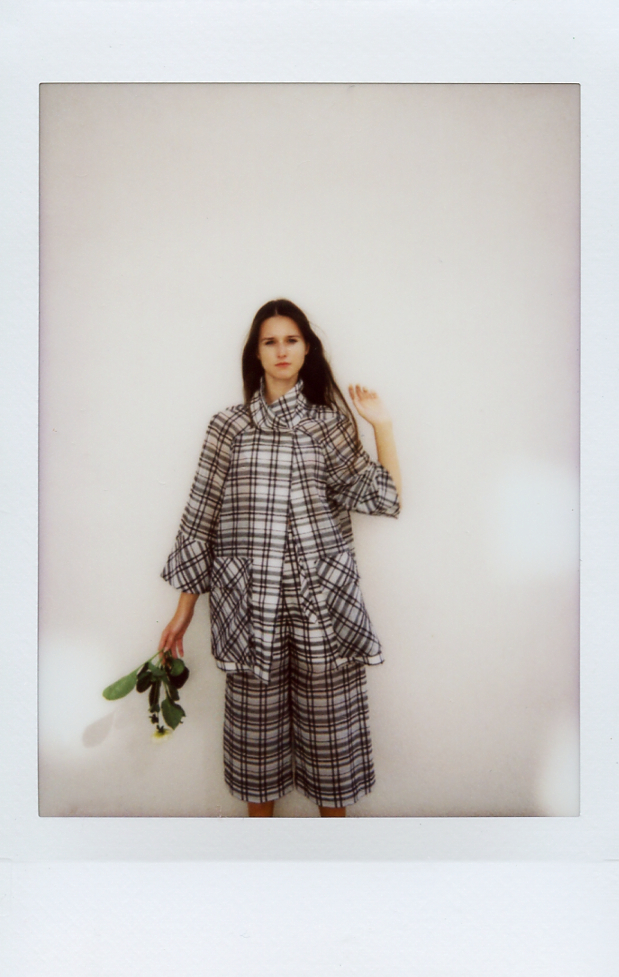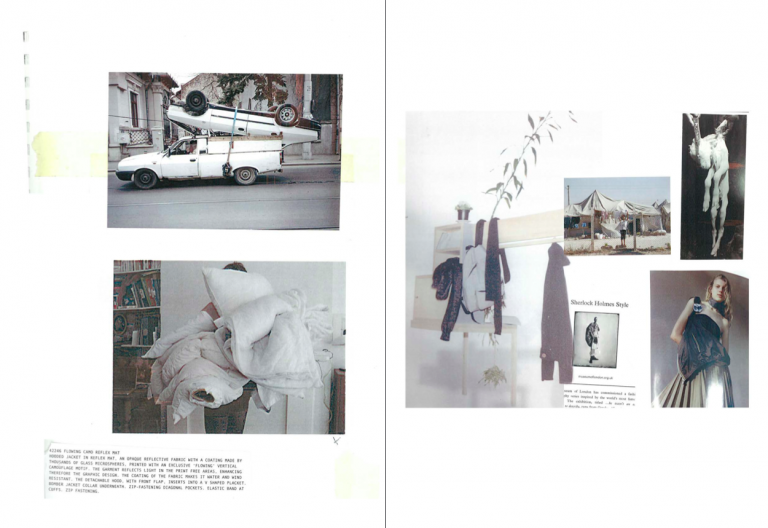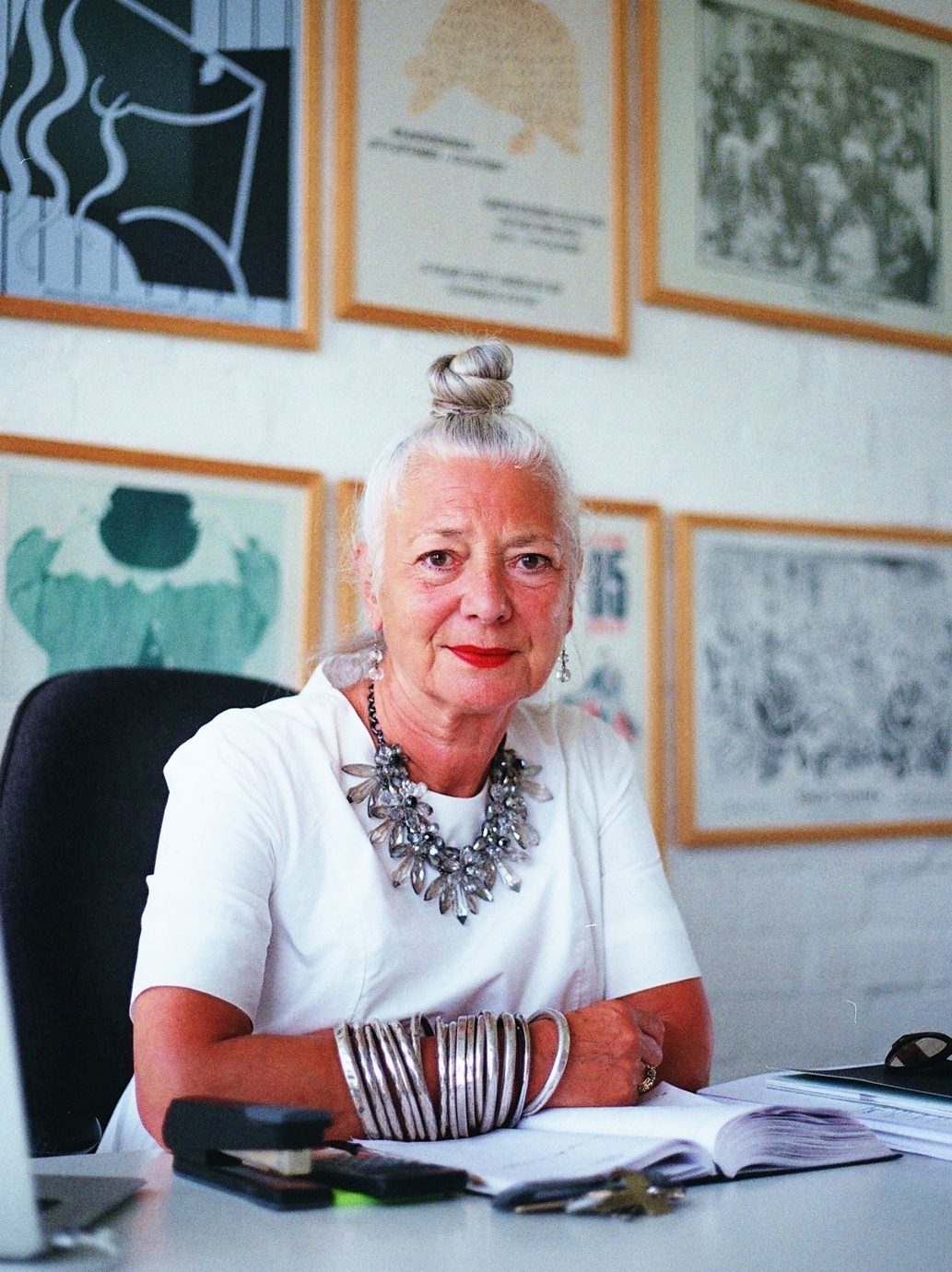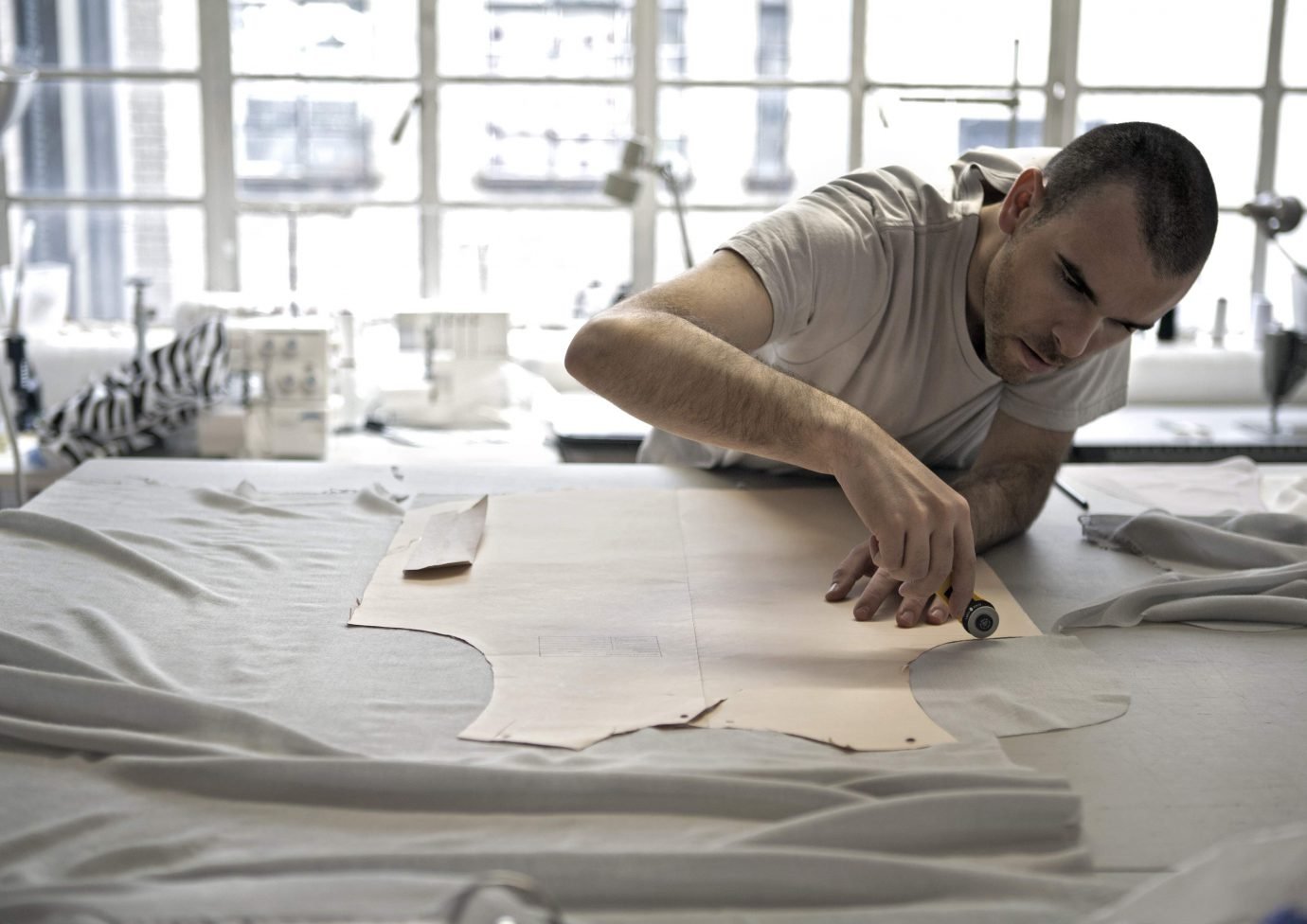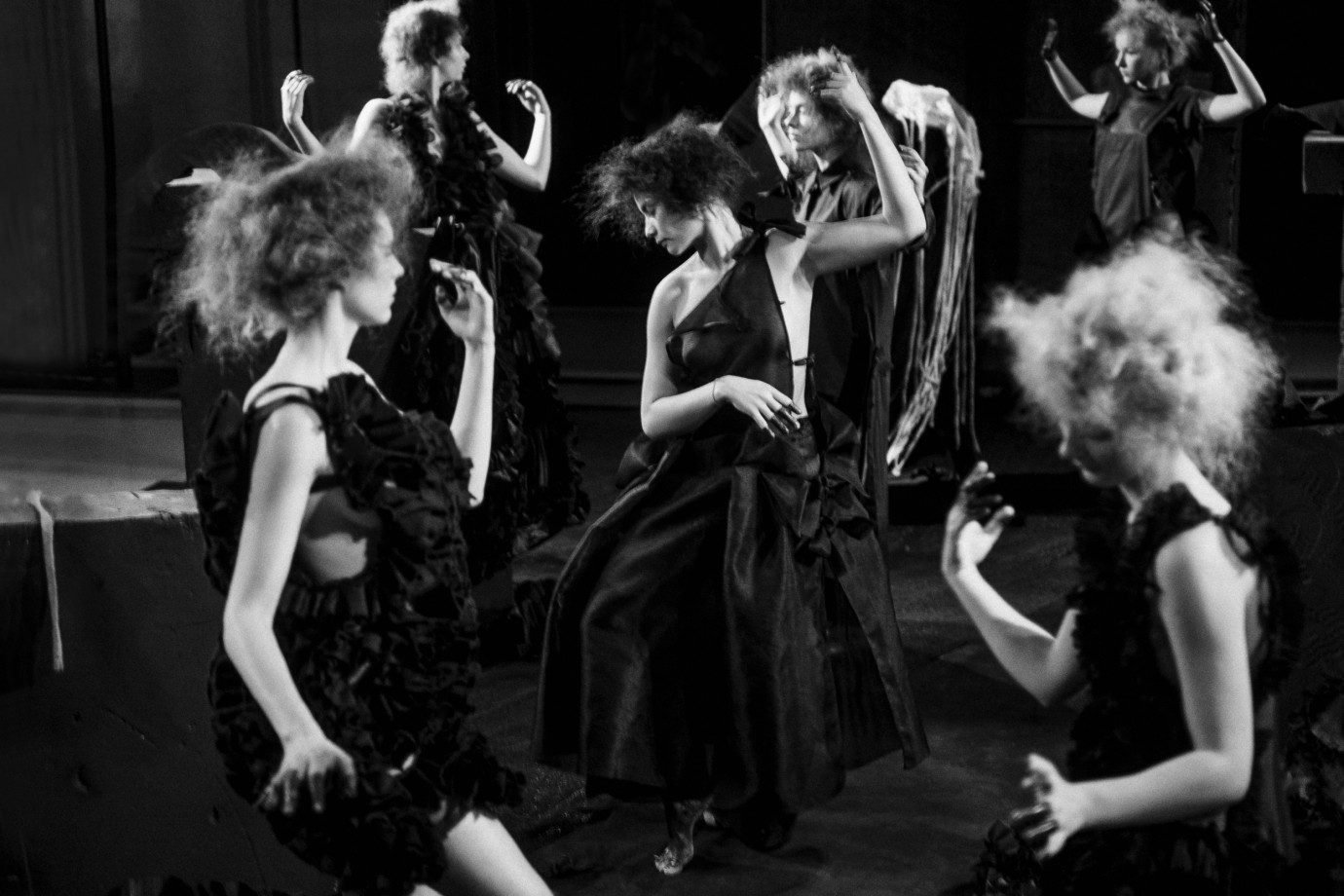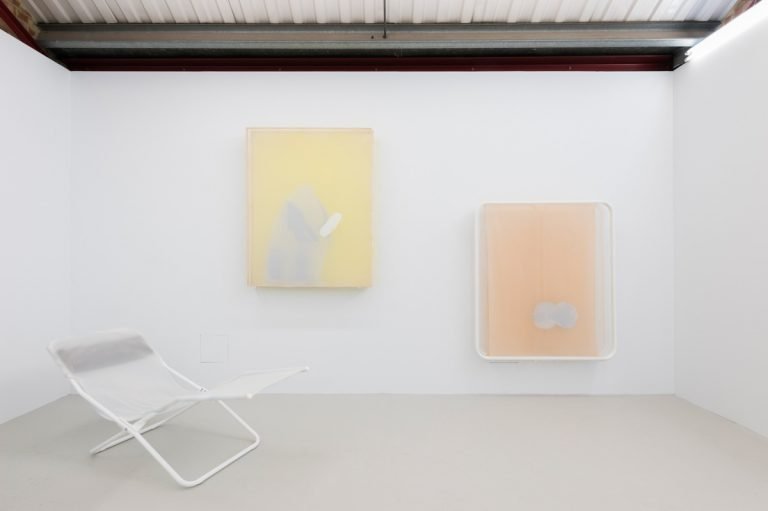Model: Charlotte at D1
“WHEN I LEFT THE RCA I WAS HEADHUNTED AND I THOUGHT ‘HEY, THERE’S MONEY I HAVE TO PAY BACK’, AND EVERYONE FREAKS OUT BECAUSE THEY NEED A JOB.”
One of the best things about the MA, she tells us, is the support system that they have in place: great technicians and committed, hands-on tutors who are available to help you because the classes are small. “You’re also just a bit older and have a bit more common sense and kind of know how, like: ‘I need some help because I embellish 10 looks – that’ll take me like 500 days’, so you know to call on people.” Apart from being surrounded by extraordinary tutors like Julie Verhoeven, the fellow students were just as much on another level. “I remember going into the RCA and being like, ‘oh, so this guy across from me just won the Graduate Fashion Designer of the Year Award and has a bursary from the British Fashion Council and he has these ENORMOUS huge showpieces,’ and I was like oh God, I don’t know, I’m here to make fashion that I think is cool and I like, but it’s not the next McQueen, it’s not that dramatic. Once I kind of got over that, it was a great experience.”
Craftsmanship, however, has always been at the heart of Danielle’s integrity as a designer. “I want to create things that are beautiful and will remain beautiful for 10 years. They will hang in your wardrobe and you will always be able to appreciate them,” she says. To her, that’s what designer fashion is about in some respect, and H&M cannot copy this because it concerns a level of craftsmanship — like artisanal hand finishings — that is preserved in the designer’s product.
Upon graduating from the RCA, Danielle was offered a job by Alberta Feretti and moved to Italy, where she spent a solid year doing lots of 3D draping work. Although having produced 7 collections to date, she never really planned to start her own label, but always thought she’d make a really great right hand woman. Having worked for a few people, she knew she loved fashion and creating things, but… she found it difficult to design for someone else’s aesthetic. “When I left the RCA I was headhunted and I thought ‘hey, there’s money I have to pay back’, and everyone freaks out because they need a job.”
“EVERYBODY TALKS ABOUT THE INCREDIBLE OVERHEADS OF DOING 2 CATWALK SHOWS A YEAR, BUT YOU HAVE TO REALLY THINK ABOUT THINGS LIKE THAT AND CONSIDER IF THAT EVEN MAKES SENSE TO YOUR BRAND NAME.”
Gradually, she decided to start her own brand, knowing the tough road that would be ahead of her. How was the first year? “Stressful,” she reflects, “in the sense that you don’t have much of a team around you — you’re pretty much doing it by yourself. Now I have some really good people working with me, but in the first year, everything is done by yourself.” She sheds a light on finance: “Honestly, the money is definitely worse in the 2nd year than in the first, because you got a bit to do a start-up.” How did NEWGEN, as well as other awards help with the trajectory of her label? “I think it was central to the development of the business,” she starts. “I think that without it you have to take your business in a slightly different direction. NEWGEN kind of opens doors – the press pays a little more attention and gives your collection a second look. You get to be part of a really good showroom system in Paris, and then all of the sudden Dover Street Market is picking you up, IT hong kong, Matches. The really great stores. That’s made a big difference.” This season she’s presented her SS16 collection with NEWGEN again, but generally the duration of the BFC-funded sponsorship is uncertain. Each year, designers have to re-apply. “It’s quite democratic in the sense that if they’re not liking what you’re doing or you’re not moving your business in the right direction, then they can’t support you further. So every season you reapply and go against that crazy panel of 15 people.”
Danielle is very keen to keep crafting her business after her NEWGEN story finishes. “I guess you want to continue to grow in the right stores and to build a proper loyal fan-base. And carve yourself a spot in the market – like really, I just want to be here doing this in 5 years time, having as much fun as I have now and still getting to work with great people, you know what I mean? I think you have to pretty disciplined, you have to not take more than you can chew. Everybody talks about the incredible overheads of doing 2 catwalk shows a year, but you have to really think about things like that and consider if that even makes sense to your brand name.”
Does the catwalk make sense to her, then? “I’m not sure, I don’t think so. I really enjoyed the presentations. And you have to get your business to a stage that can support that without funding. I think a lot of brands struggle – even brands that do amazing shows, like obviously Meadham Kirchhoff. It’s a pretty saturated market place and a lot of people want to buy labels that have been around for 50 years+ and have huge campaigns behind them, and those campaigns are reinforced with editorial content, you know? It’s not exactly an easy market to break into and hold a position in. Who knows – I think if anyone had the keys, it would look pretty different!”





